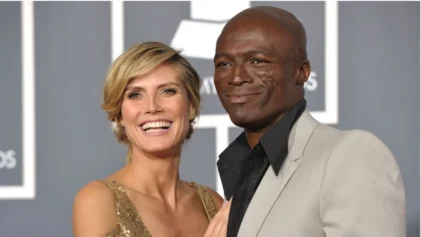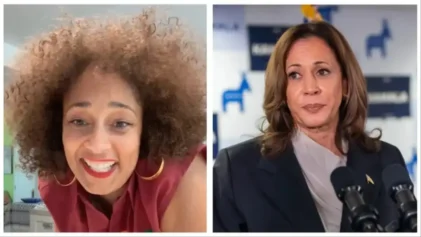Netflix’s upcoming sitcom “Family Reunion” is set to debut on the streaming platform July 10, but it’s not like your run-of-the-mill sitcom.
The family-oriented show follows a retired football star and his free-spirited wife who pick up the family and move from Seattle, Washington, to Columbus, Georgia, after visiting the Southern town for a family reunion.

The premise of having a big annual family gathering every year is one that many in the Black community can relate to. With that in mind, it was important for the show’s creator and executive producer Meg DeLoatch to have authentic voices crafting the stories. As such, DeLoatch put together a writers room composed entirely of Black scriptwriters.
“Most African-Americans are only one or two generations away from Southern roots, which means that no matter what our background or where we live, we have a lot of traditions and attitudes in common,” she told Atlanta Black Star Wednesday, July 3. “I wanted to explore that, as well as our uniqueness. With an all-Black writers room, we were able to be direct and honest about our community and yet always present it with love.”
The series, which counts Loretta Devine and Tia Mowry-Hardrict among its stars, will tackle many subjects relatable to Black viewers. Not only does it chronicle a down-home family get-together, but it also covers discussions about whether or not to spank children and the importance of attending church.
When seeking writers for the show, DeLoatch said she was actually encouraged by Netflix to hire Black scribes.
“I was absolutely thrilled,” she said. “I’ve been a part of Black rooms in the past, but they were usually small and for Black networks. To put together a completely Black room without resentment or resistance was a novel experience.”
Additionally, DeLoatch noted that she had no issues getting African-Americans to write the series, firmly dismantling the notion that there is a lack of Black scriptwriters in the industry. She even made sure that there was diversity within the backgrounds of each writer.
“Hollywood is full of them,” she said of the presence of Black writers. “I had a talented pool of people to select from and it wasn’t easy. It was important to me to have a diverse group, so we had five Black men and, including me, five Black women whose backgrounds ranged from upper middle class to working class, from all over the country and with different perspectives.”
She added she hopes Tinseltown notices, “we are here, in large numbers, and we are smart and creative and an asset to any room, not just a Black room that deals with Black characters.”
Indeed, many conversations surrounding representation in Hollywood focus on who is in front of the camera. But DeLoatch’s approach shows how important it is to get Black creators involved behind the camera to tell their own stories. It’s something the producer hopes Hollywood holds onto once the show premieres.
“First, I hope they recognize the value in programming for African-Americans, one of the most TV-engaged yet under-serviced audiences, and that by doing so they will also get viewers who aren’t Black but are able to enjoy the authenticity and see themselves in the universal themes relating to family,” she said.
Then DeLoatch remarked she wanted show business to give some props to Devine. She added, “I’d love for Hollywood to acknowledge the comedic force that is Ms. Loretta Devine.”


